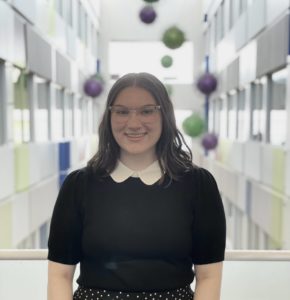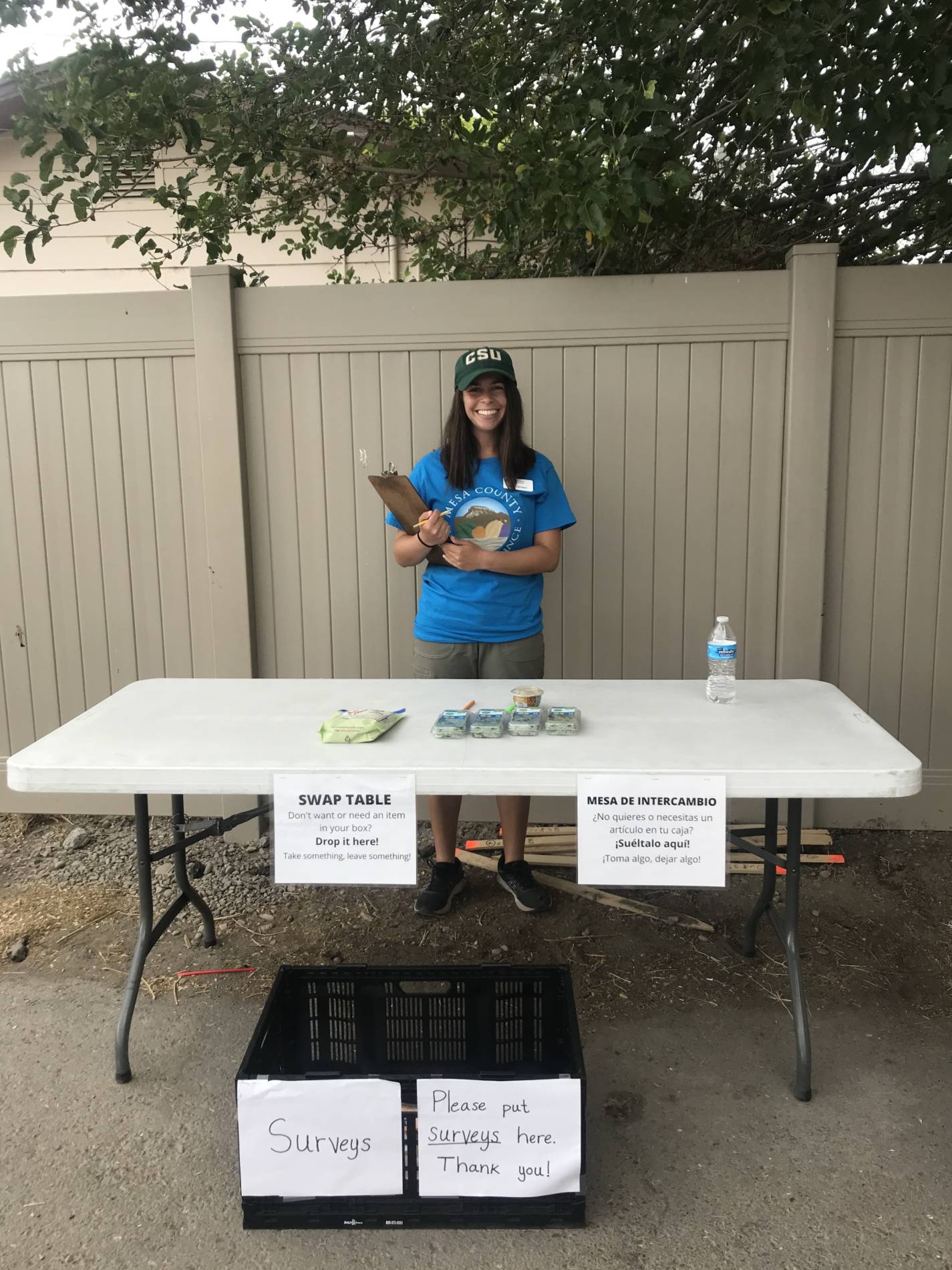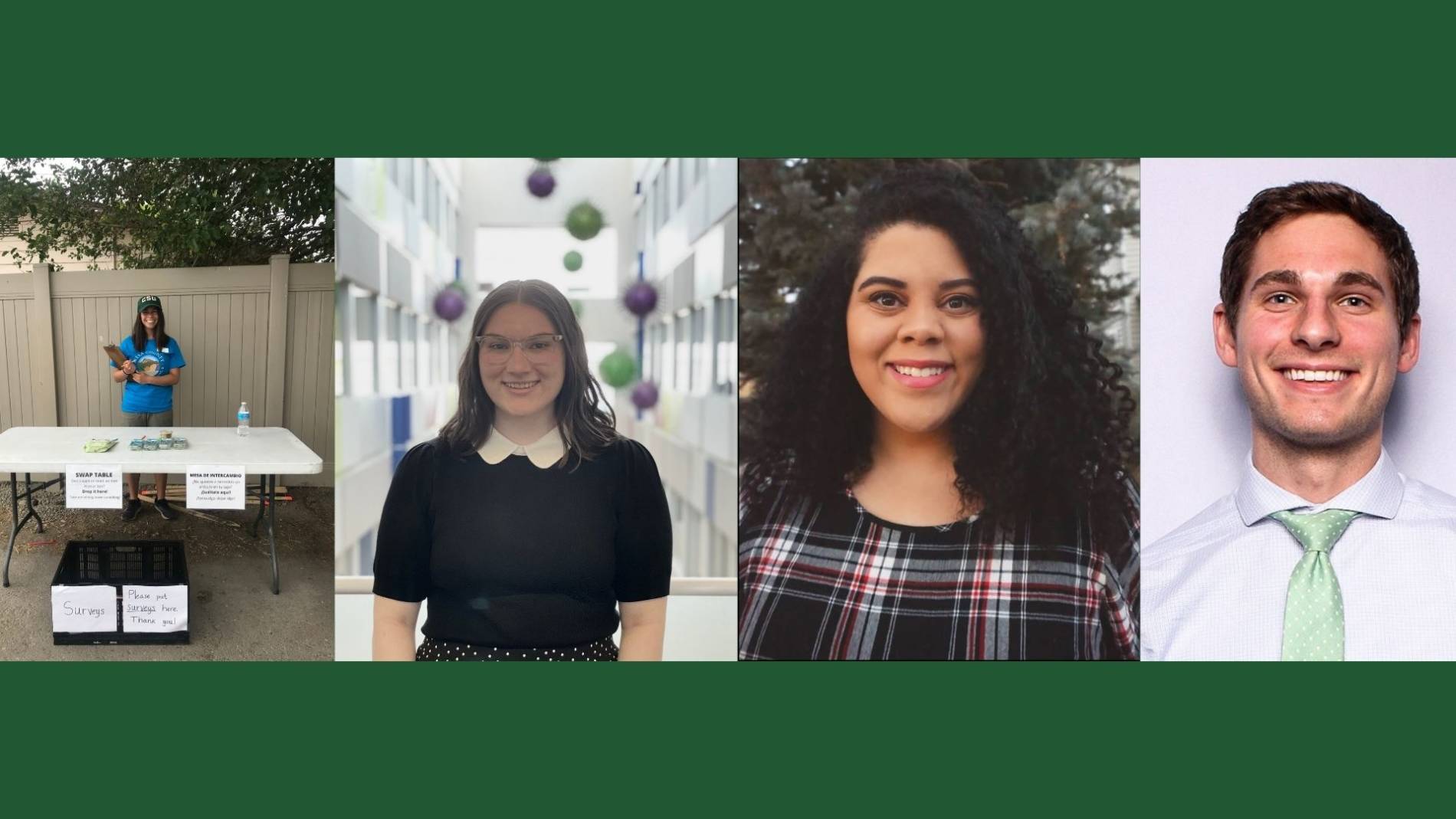Every semester, MPH students at the Colorado School of Public Health complete practicums that assist in the application of their public health education. This year’s projects spanned throughout Colorado and the Americas to help those in need. After a semester of intense fieldwork, the students were able to share their findings and highlight major issues in their designated locations. This year’s topics ranged from guidebook creation in Peru, harm reduction resources in Denver, food pantries in Grand Junction, and mosquito research in Colorado.
Guidebook Creation in Peru

Our first student, Madison Bristol, is an MPH student with a concentration in Epidemiology set to graduate May 2022. Madison is working on a project for the Foundation for International Medical Relief of Children (FIMRC) sites in Peru. This project is a Dengue Educational Guidebook because They are currently amid a dengue epidemic, worse than their 2017 epidemic. She is spending most of her time doing research and writing on the different sections of the guide, including epidemiology, history, vector ecology, and much more. She has also had the opportunity to create visual aids and planning activities that are implemented for the FIMRC program participants.
Madison had first learned about FIMRC through the practice-based learning email thread for the ColoradoSPH. She has always had an interest in medicine and global heath, so she found this to be a great fit being that it utilizes both topics.
Through her practicum, Madison has recognized the huge role that social determinants of health and environment play in a community’s wellbeing.
“This experience also made me realize the importance that the environment can play in health and access to care, with many of the programs that FIMRC works on being environmentally-focused, such as building bridges in Uganda to help laboring women navigate the mountainous terrain to get to the clinic and building chimneys in homes to reduce incidence of lung infections and diseases. I think many people think of public health as solely focused on diseases and pathogens, when there are many facets that contribute to a community’s health” said Madison.
Madison has also received guidance from her preceptor that has assisted in her work.
“One important piece of advice she gave me about working with global and rural/native populations is that context is key. Some populations may not have high literacy rates, or they may not have access to certain treatments or technologies that we have in the U.S., so we must be aware of that when communicating health messaging to these communities. Her guidance has been very helpful when creating activities and messaging for rural communities” said Madison.
Harm Reduction Resources in Denver

Our next student, Megan Hervey, is an MPH student with a concentration in Global Health and Health Disparities set to graduate this summer. Megan is working with the Harm Reduction Action Center (HRAC). The HRAC offers a syringe access program and other services for people who use drugs. Megan’s duties include working with the syringe exchange patients, offering information about other programs, and working with staff to research past and current efforts to assist in making outreach more effective.
Megan has been able to apply what she has learned in her course that covered information on substance use and abuse to her fieldwork.
“In my Substance Use course, I had the opportunity to engage with harm reduction resources and learn about syringe access programs through academic research. The knowledge gained in this course gave me the foundation for working in a harm reduction setting. I’ve also learned a lot about how to use an equity-centered lens when working within communities through my coursework, which helped inform my practicum projects” said Megan.
Prior to her MPH and working with HRAC, Megan found her start when she obtained her Bachelor of Arts degree in Psychology. She had been working at a mental health treatment facility, where her work was individualized, when she was inspired to pursue public health.
“It [public health] is such an expansive and interdisciplinary field that connects to every facet of our life on multiple levels, including through community-level and larger population-level lenses” said Megan.
Through public health, Megan hopes to continue to promote and work towards greater equity, access, and empathy in the field.
Food Pantries in Grand Junction

Rachel Seidner, an MPH student with a Physical Activities and Healthy Lifestyles concentration, plans to graduate in May 2022. Rachel is working with the CSU Extension program in Grand Junction, CO looking at food pantries in Mesa County. Through her work, she researched how food pantries can improve to meet the food needs of the community. So far, Rachel has developed surveys that will be administered to collect data on the needs of the community.
Rachel’s interest in public health began when she became a personal trainer and water aerobics instructor. She had a larger interest in interacting with people directly and helping them to become healthier.
“Through personal training, I realized how toxic gym culture and wellness culture can be and I wanted to help people achieve wellness in a more positive, supportive way” said Rachel.
She eventually moved on from training and instructing and discovered the MPH/MSW dual degree program, where students earn their master of social work and master of public health degree in one less year, and found exactly what she had been looking for.
Rachel’s favorite memories were having conversations with clients at the food pantries and hearing their stories. These interactions helped her to understand how the surveys were working.
Mosquito Research in Colorado
An MPH/DVM student who will soon start his veterinary training, Ted Midthun, is in the Animals, People, and Environment concentration, and set to graduate in 2025. This semester, Ted is working on the evaluation of state and local public health campaigns focused on mosquito disease prevention. His evaluation work will identify which public health messaging is effective. Ted is utilizing the knowledge obtained in his Health Communication class to identify different messaging tactics and evaluation. He has also had the opportunity to collect and identify locally caught mosquito species for the purpose of genetically characterizing whether the mosquitos are resistant to insecticides.

As for Ted’s future career:
“I would like to work in a team setting with varied experts to promote and enhance human, animal and environmental health as a future veterinarian” said Ted.
Moving forward
With the knowledge and skills gained through their MPH coursework, these students worked at the local, national, and international levels to address some of today’s pressing public health issues. These applied experiences built into the MPH curriculum are stepping stones to future careers for MPH students, and we look forward to seeing what they go on to do next.
Written by Erica J Carter

